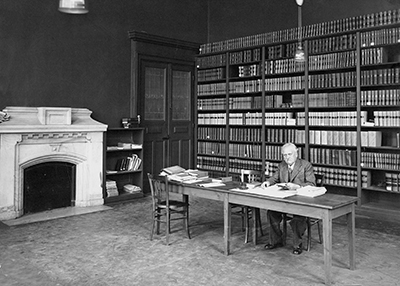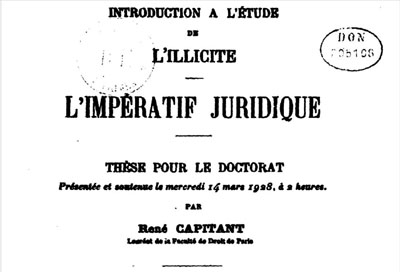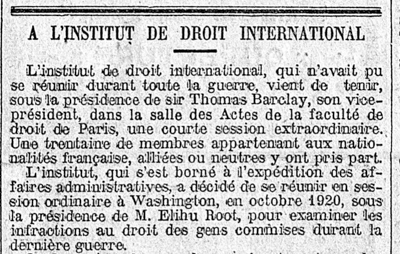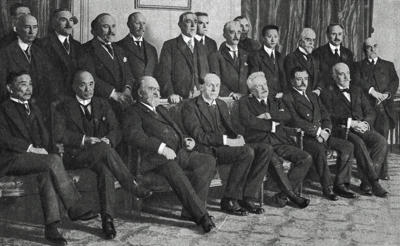The Lyon Faculty of Law after the war : promoting peace through law
Even before the signing of the armistice with Germany, the University of Lyon had entered fully into this movement characterized by the efforts of civil society, in order to convert military relations between allied nations into cultural exchanges that were hoped deep and fruitful. The Alliance thus sought to renew itself, while deepening itself, since one would strive to access facets hitherto totally unknown or little known to the culture of yesterday’s military ally. In short, it was hoped that the temporary fraternity of arms would be converted into a solid friendship, which would, however, be lasting only if each made the effort to know the other better. It was American academics, grouped within the American University Union (AUU), who, even before the end of thepour lire la suite…
From the “legal war” to the “Roaring twenties” of legal science
Law was at the heart of the struggle between the Axis and Entente powers. French jurists used all their rhetorical weapons to spread the values of “Latin civilization” in the face of “Teutonic barbarism”. The propaganda of the war of law against force revived hatred and the desire for revenge against an enemy hated as much as it was admired since its victory in 1870, which is attributed to the supposed superiority of German universities. Argument of mobilization of the fighting masses, the legal war was transformed into an ideological opposition between two models with hegemonic pretensions, one valuing “the French genius”, the other the German “kultur“. In this confrontation of paroxysmal violence, jurists were on all fronts. Engaged in the trenches or serving at thepour lire la suite…
Law faculties on the post-war media scene : a vengeful and hopeful reconstruction
A test for French society as a whole, the Great War was also a test for academic environments, law schools especially. These “diverse little societies”, as Immanuel Kant called them, which would be a part of the “scientific state” that is the University, were devastated by a conflict that mobilized the whole of society in the war effort. Law schools, according to a well-established tradition, had so far remained rather closed on themselves. Enjoying the position of “professional faculties”, in the same way as the faculties of medicine, they did not cease to attract in their amphitheaters, promotions of students whose important numbers guaranteed the finances, as well as the growth of the teaching staff. In addition, this influx made it difficult to even usepour lire la suite…
Participation of French jurists in the Peace Conference of 1919
At the end of the conflict, the victors of the First World War had wished to give a new legal colour to the Europe that would appear on the debris of the fallen empires. Clemenceau had thus spoken of the creation of a “Europe of Law” which should be the ultimate objective of the Allies when they went to negotiate peace. In this context, the Allies had to rely on legal experts, in particular international law experts, whose technical advice had been regularly sought for the purpose of providing expertise. “Jurists” here shall refer to those who through their training knew the Law, and thus practiced or applied it. What mark did the French lawyers leave on the negotiations and the peace treaties ? Did theypour lire la suite…




